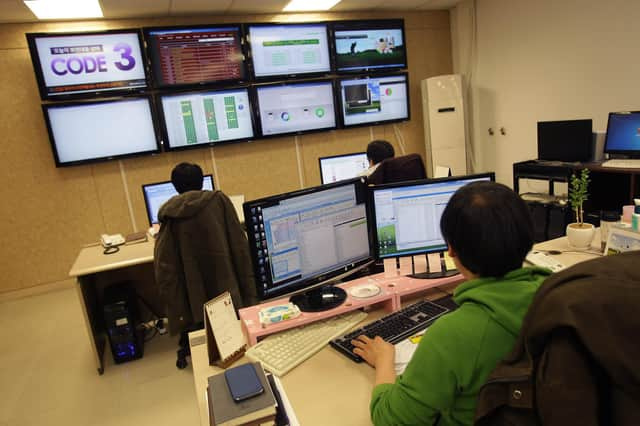Cybercrime is only set to increase in 2022 and we must be increasingly on our guard – Tom Wood


There’s also a good chance you didn’t realise you were a cybercrime victim or didn’t report the crime even if you did. The chances are that the criminals responsible operated in a different continent, thousands of miles away, where they were protected by sympathetic governments. As for the chance of them being brought to justice, let’s just say it was remote.
And if you survived 2021 unscathed, this year will carry greater risks. A product of our hyper-connected world, this new crime has grown in only 20 years.
Advertisement
Hide AdAdvertisement
Hide AdThe malign manipulation of the cyberworld runs through our systems from top to bottom.
At national level, cyber attack has become the weapon of first choice. A war would no longer be preceded by an air raid but by an electronic assault on the enemy’s infrastructure, power supplies, telecoms etc. Western cyber experts are being deployed to Ukraine right now, as a first line of defence against Russian attack.
But state actors do not restrict themselves to pre-invasion plans, cyber capabilities are also used to disrupt others’ democratic processes. It is difficult to tell what the effect of such fake news actually is but we would be naïve not to consider such meddling a real threat, especially when we live in such a febrile political era.
One down from the state actors are the often state-protected criminal gangs who specialise in ransomware – electronic blackmail. This new crime has reached such proportions that VIPs now must surround themselves with cybersecurity as well as bodyguards.
Most of us ordinary folk are not directly affected by such high-level machinations but we are by the new breed of cyber conmen who now proliferate. Who hasn’t had a fake email or automated phone message telling us that that our bank account has been hacked, our credit card cancelled or that our electricity is about to be cut off?
Eventually you grow a thick skin, dismissing messages you don’t recognise. But many fall victim, especially older people, with the bogus workmen of old augmented by new remote fraudsters.
The truth is we do not know the extent of this problem, the number of unreported cybercrimes may be enormous. The only thing certain is that as our dependence on electronic communications grows, so will the crime that rides on its back.
So what can we do to defend ourselves?
At state level, we are in good hands. GCHQ has a deserved reputation for excellence. And our police forces are all well-equipped, with cybercrime a top priority.
Advertisement
Hide AdAdvertisement
Hide AdTo help them, there are also a number of well-organised multi-agency cyber security centres, to make sure our defences are coordinated.
But there’s no room for complacency. As a timely reminder, it was reported last month that Russian hackers had penetrated Police Scotland’s data, posting it online for mischief.
Ultimately it will always be up to us as individuals to protect our own property. Just as we lock our doors at night, so we must protect our electronic data as we would our family heirlooms. Watchfulness will be our best protection in 2022.
Tom Wood is a writer and former police officer
